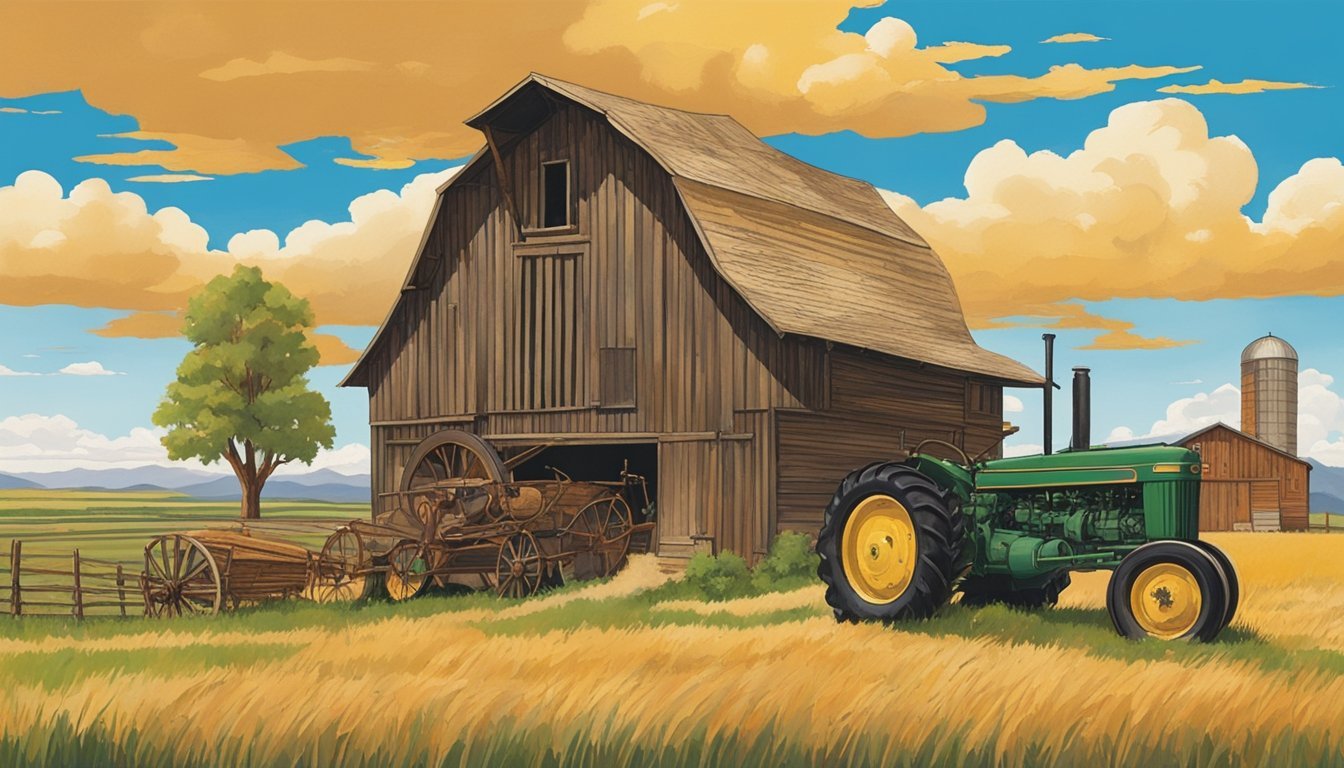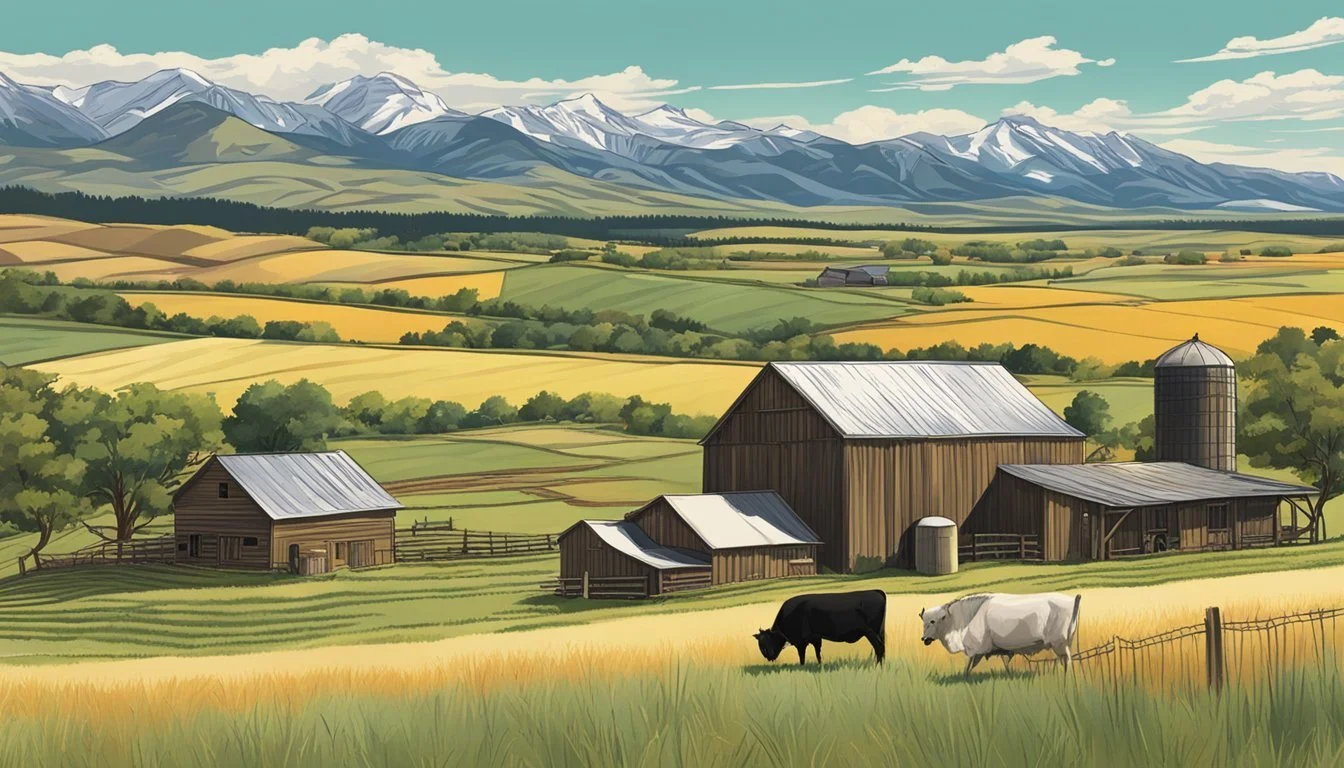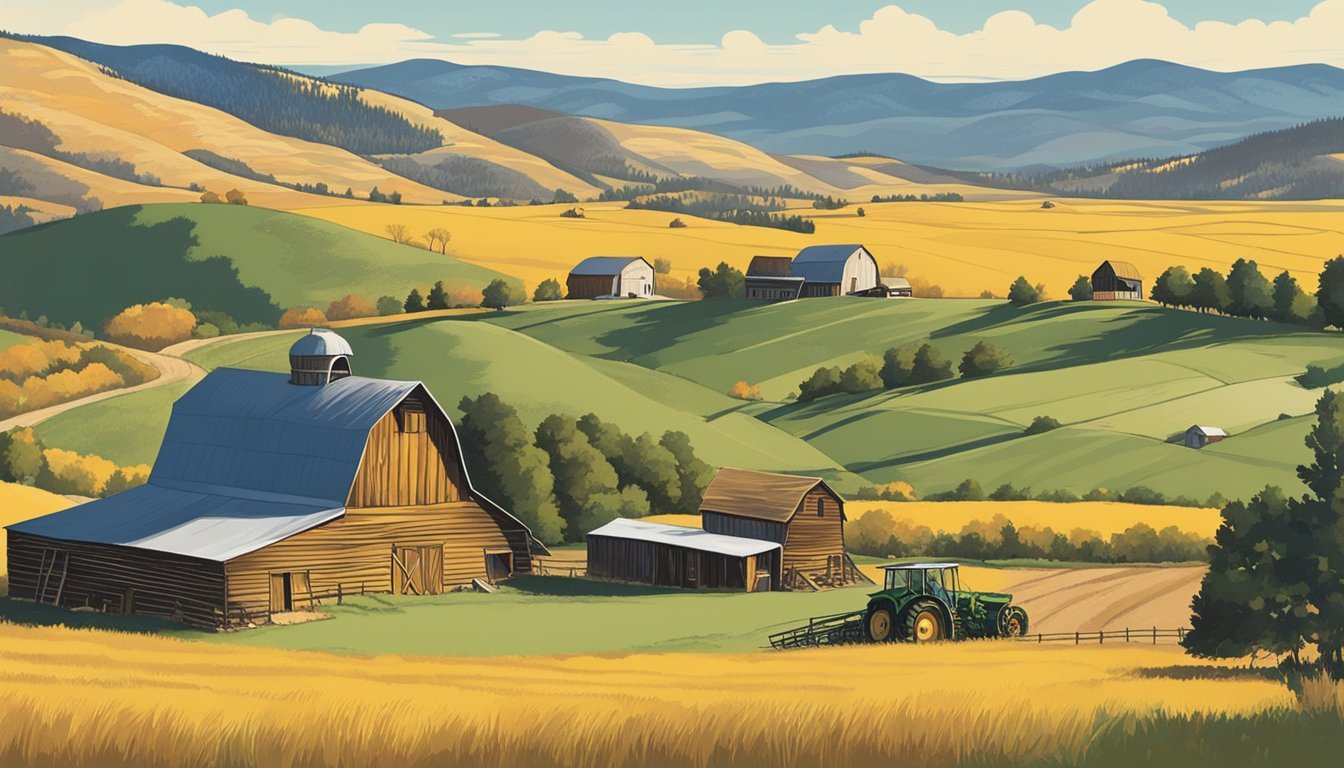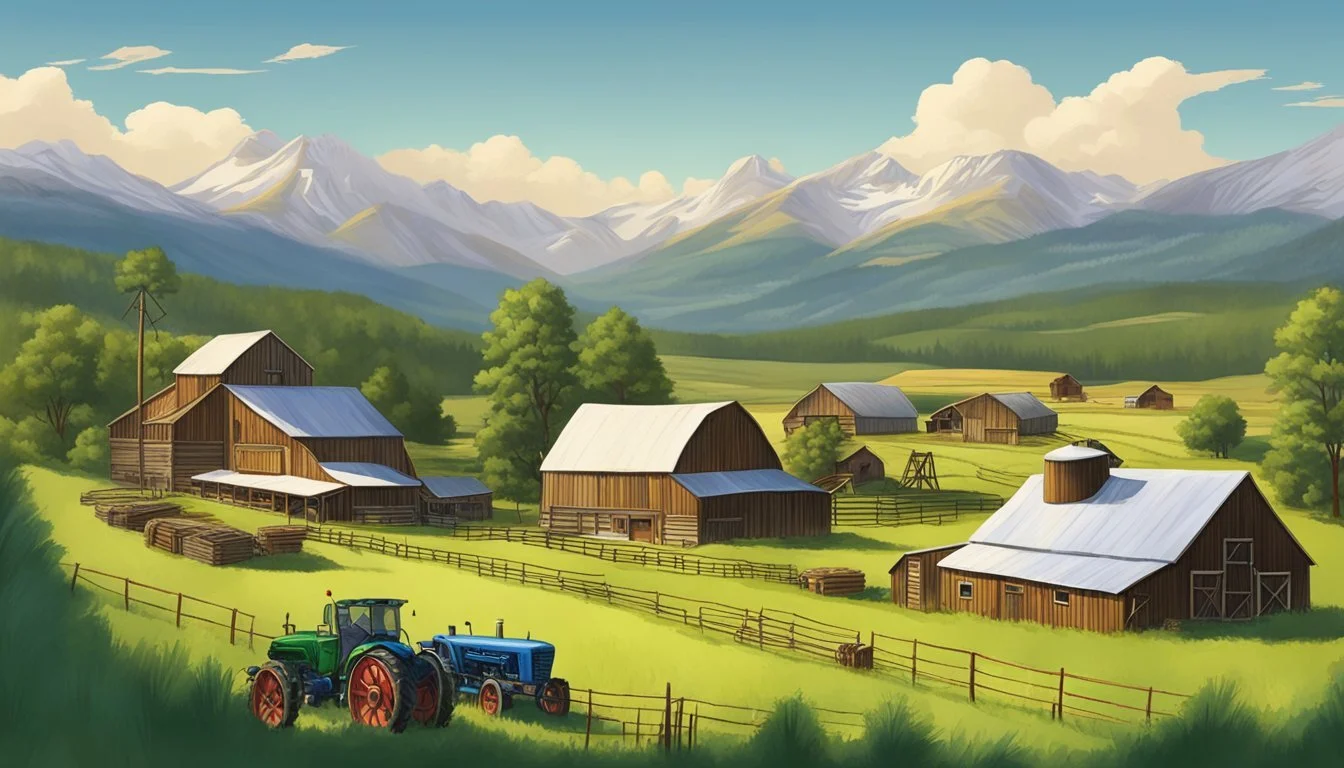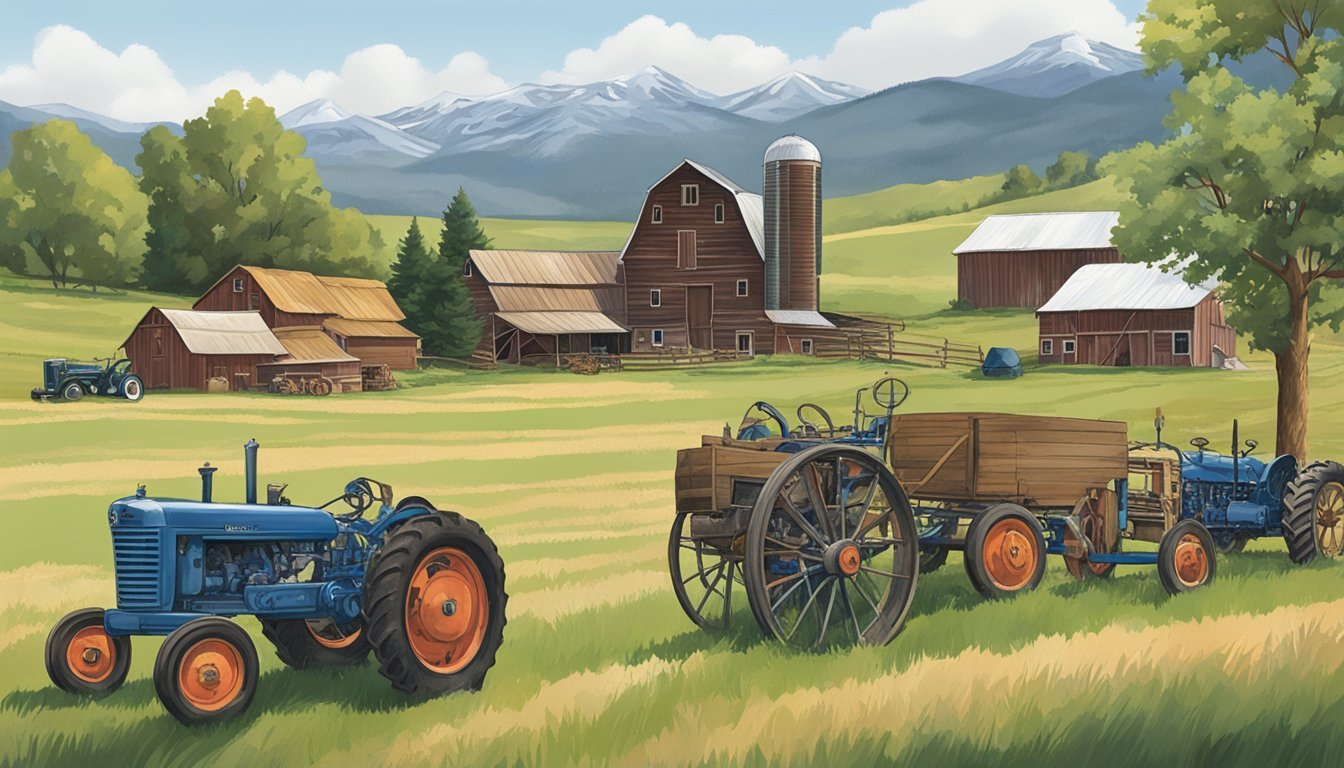Historical Farms and Agricultural Museums in Colorado
A Guide to Agrarian Heritage Sites
Colorado's landscape is etched with the footprints of a robust agricultural past, a history that has played a pivotal role in shaping the state's identity. Farms and ranches sprawled across the region narrate stories of families who have toiled the land for over a century, a testament to the enduring spirit of Colorado's agricultural community. The acknowledgment of this heritage is prominently displayed in institutions like the Centennial Farms & Ranches program, which honors the multi-generational commitment to farming and ranching in the state.
Beyond the accolades and recognition, Colorado also offers a tangible connection to its agrarian roots through various historical farms and agricultural museums. These living history sites, such as the Littleton Museum with its 19th-century farm, provide immersive experiences that invite visitors to step into the shoes of the early settlers and understand the intricacies of life on the Front Range. Similarly, the Cross Orchards Historic Site brings history to life by allowing guests to explore vintage equipment and historical buildings that offer a glimpse into the agricultural methods of yesteryear.
The dedicated preservation of Colorado's oldest farms is critical to maintaining an authentic record of the state's evolution and the people who have shaped it. As the list of recognized agricultural landmarks grows, venues like the Centennial Village Museum serve as custodians of history, safeguarding Colorado's legacy for future generations. They offer more than just a backdrop; they are dynamic educators that engage the public with the stories of families and the land they have nurtured, bridging the gap between the past and present of Colorado agriculture.
The Role of Historical Farms in Colorado's Development
Historical farms in Colorado play a pivotal role in shaping the region's economic and cultural identity, retaining agricultural heritage from as early as the 1860s.
Agricultural Legacy and Centennial Farms
Historical farms in Colorado are treasured for their enduring contribution to the state's economy and agricultural heritage. The Centennial Farm program recognizes properties that have remained in the same family for over 100 years, highlighting the perseverance of these families in maintaining agricultural traditions despite the challenges of modernization and economic fluctuations. These Centennial Farms, dating back to the 1860s and 1890s, not only mark Colorado's development but also honor the uninterrupted bond between the land and the generations that have tended it.
Centennial Farms: A seal of historical significance, recognizing over a century of family stewardship.
Economic Contribution: These farms contribute to the state's GDP, preserving vital agricultural skills and practices.
Preservation of Heritage: The farms stand as living museums, embodying the agricultural spirit of the early settlers.
History Colorado offers a wealth of information on these family legacies, commending them for preserving Colorado's rural landscapes and ways of life.
Agricultural Museums and Research Centers
Agricultural museums and research centers serve as crucial institutions for education, appreciation, and study of Colorado's agricultural evolution. They are reservoirs of knowledge, providing insights into historic farming methods and demonstrating their impact on the region's development. These venues closely work with Centennial Farms, offering context to Colorado's agricultural timeline and spotlighting the technological advancements from the 1860s to the present day.
Educational Outreach: They provide programs to impart the historical importance of agriculture in Colorado.
Research and Preservation of Practices: A focus on the innovation and adaptation of the agricultural sector over the years.
Together, these museums and research centers bridge past and present, ensuring Colorado's agricultural narrative remains a relevant and admired chapter in American history.
Major Historical Farm Destinations
Colorado boasts a wealth of historical farm destinations that offer a unique window into the state's rich agricultural past. These sites preserve the legacy of the farming community, providing immersive experiences that blend educational exhibits with original artistry.
Littleton Museum Agricultural Exhibits
The Littleton Museum serves as a notable repository of the state's agricultural history; it features dedicated agricultural exhibits which include historically accurate recreations of 19th century farm sites. Visitors can explore period-correct farms complete with live animals, farming equipment, and docents that provide informative narratives. The Permanent Exhibit showcases the transformation of local agriculture and the distinct heritage of the region, offering an educational journey through time.
Pueblo's Living History at Colorado State Fair
Each year, the Colorado State Fair in Pueblo transforms into a living history exhibit, delivering a robust blend of the state's agricultural evolution and contemporary artistry. Within the extensive array of exhibits, guests encounter an interactive and enlightening vista into Colorado's farming traditions. Not only does the fair illustrate the agricultural methodologies of yesteryear, but it also displays a sophisticated collection of art reflecting the rich cultural tapestry of Colorado. This event highlights agriculture's ongoing importance to the state's identity and economy.
Evolving Agricultural Practices Over the Centuries
Colorado's agricultural legacy is one that illustrates a continual advancement and adaptation to both challenges and opportunities throughout history.
Adaptation to Environmental Challenges
Agricultural practices in Colorado were intricately shaped by the state's unique environmental conditions, including its semi-arid climate. Indigenous peoples, pioneers, and settlers had to navigate the challenges of limited water availability. They developed sophisticated irrigation systems, such as dams, canals, and terraces to provide water to their crops. This mastery of water management enabled the cultivation of a variety of crops, ensuring food security and the establishment of stable communities.
Technological Innovations in Farming
As the 19th Century progressed, innovation in farming led to significant changes in agricultural practices. The introduction of modern technology played a pivotal role in transforming farming from labor-intensive methods to more efficient and productive systems. The steel plow, reapers, and later, mechanized tractors and combines, allowed for the cultivation of the vast plains of Colorado. This evolution not only changed the scope of crops produced but also sparked the growth of agricultural communities across the state.
Family and Farmer Stories: A Tapestry of Colorado's Heritage
In Colorado, the rich soil tells tales of families who have toiled it for over a century. These families, known as Centennial Families, have become integral threads in the state's agricultural heritage. They represent a lineage of resilience and commitment to the land that spans generations.
Centennial Farms & Ranches recognize these storied families and the individuals who persist in these age-old traditions. It's more than ownership; it's a lifelong pursuit embedded in their identity. Those who have reached the impressive milestone of a century, often share an intimate history with the peaks, plains, and rivers shaping this diverse landscape.
Preserved Legacies: Historical farms offer snapshots of the evolution of farming techniques and challenges over time. Each family's unique narrative contributes to the state's collective history.
Educational Footprints: Museums such as the Agricultural Heritage Center transform these stories into interactive experiences that educate visitors about the importance of agriculture in Colorado's past and present.
At certain farms, visitors can see how the union of past and present creates a dynamic future. Agricultural practices, once necessary for survival, now serve as educational tools and cultural preservation.
The legacy of farmers in Colorado is as enduring as the mountains. Their tales speak not just of personal triumphs and struggles, but of shaping a state—a landscape physically and culturally carved out by those who have loved and lived off the land. Through their efforts, Colorado's agricultural history is not only preserved but continues to flourish, fostering a deeper appreciation for the generations that have laid the foundation of the state's agrarian society.
Education and Community Outreach
Educational initiatives and community engagement are at the heart of preserving Colorado's historical farms and agricultural heritage. These programs offer a dynamic way for visitors of all ages to understand and appreciate the state’s rich agricultural past.
Interactive Exhibitions and Learning Opportunities
Historical agricultural sites in Colorado frequently host interactive exhibitions to educate the public on farming's evolution and its current significance. These exhibitions often feature hands-on activities and are designed to cater to various age groups, making them a family-friendly option for learning. For example, the "Follow the Farm Table" exhibition at a local agricultural museum might include an actual antique plow for visitors to examine, or a simulated milking station. They often collaborate with institutions like the Smithsonian Institution to ensure that they are providing accurate and engaging content.
Partnerships and Collaborations
To enhance their educational outreach, Colorado agricultural museums partner with local schools, educational entities, and other museums. Through these collaborations, they foster a deeper understanding of Colorado's farming history. Programs like the Centennial Farms & Ranches initiative leverage partnerships between History Colorado and the Colorado Department of Agriculture to celebrate the perseverance of the state's farming and ranching families. This includes organizing educational workshops and interactive school programs that allow students to dive into aspects of agricultural lifestyles and their contributions to state history.
Conservation and Preservation Efforts
In Colorado, significant efforts are undertaken to ensure the conservation and preservation of the state's agricultural heritage. These encompass initiatives to maintain open spaces and historic buildings, as well as recognizing the enduring efforts of those who steward these lands and structures.
Stewardship of Open Spaces and Historic Buildings
Colorado's open spaces and agricultural history are meticulously preserved through cooperative initiatives. These include efforts like the preservation of 116-acres of significant farmland and water in the Historic Splendid Valley, representing a steadfast commitment to maintaining both land integrity and historical value. Through such stewardship, communities honor both ancestral agricultural practices and the perpetual necessities of food production. Collaborative preservation work between the City of Brighton, Adams County, and The Conservation Fund exemplify this dedication to conservation.
The role of the Colorado State Historic Preservation Officer extends these conservation ideals by guiding policies and practices that protect and foster appreciation for Colorado's vast historic resources, including those tied to agriculture. This officer aids in ensuring that the state's farmland legacies are not just recognized, but also protected for future generations.
Awards and Recognitions for Agricultural Stewardship
Recognizing and honoring the perseverance of Colorado's farming families is fundamental to promoting agricultural stewardship. The Centennial Farms & Ranches Program, a collaboration between History Colorado and the Colorado Department of Agriculture, exemplifies this by honoring farming and ranching families who have displayed enduring commitment in managing their lands. They commend not just agricultural output but also sustainable, long-term land stewardship.
Moreover, prestigious acknowledgments like the Stephen H. Hart Awards for Historic Preservation set a benchmark for excellence, singling out those who have excelled in maintaining and revitalising Colorado's historical architectures, including farm and ranch buildings. These awards embody a public testament to both the endurance of these structures and the perseverance of those who keep them standing proudly. Through such accolades, Colorado not only acknowledges the past efforts but also encourages ongoing dedication to agricultural legacy and stewardship.
Practical Information for Visitors
Visitors interested in Colorado's farming history have several museums to choose from. Each provides a unique insight into agricultural heritage through various exhibits and interactive experiences.
Visiting Hours and Admission Details
Agricultural Heritage Center
Hours: Thursday - Saturday, 10 AM to 5 PM; Sunday, 12 PM to 5 PM (April - October)
Admission: Free
Centennial Village Museum
Hours: Wednesday - Saturday, 10 AM to 4 PM; Sunday, 12 PM to 4 PM (May - September)
Admission: Adults: $8, Children (3-17): $6, Seniors (60+): $6
Location and Contact Information
Agricultural Heritage Center
Address: 8348 Ute Hwy Longmont, CO 80503
Website: Agricultural Heritage Center
Phone: Contact through Boulder County main line
Centennial Village Museum
Address: 1475 A St. Greeley, CO 80631
Website: Centennial Village Museum
Phone: (970) 350-9220
Agricultural Living History and Reenactment
Colorado offers a tangible way to experience agricultural history through living history farms and museums where reenactments and demonstrations breathe life into the past.
Historical Reenactments and Demonstrations
At sites like Rock Ledge Ranch Historic Site, visitors can witness history in motion through skilled reenactors epitomizing the daily lives of farm workers, blacksmiths, and ranchers. Blacksmithing demonstrations reveal the ingenuity and skill required to maintain a working farm. The clanging of the anvil and the glow of the forge become a vivid portal to the past.
Blacksmith:
Demonstrates traditional metalworking
Vital to farm tool repairs and creation
Ranches:
Showcase historical livestock care and breeding practices
Located on the outskirts of Denver and throughout Colorado
Experience Farm Life in the 1800s
Living historical farms offer a detailed glimpse into what daily life was like in Colorado during the 1800s. At these sites, visitors interact with various farm animals. Heritage breeds of livestock, such as those found on working ranches near Denver, provide a window into the genetic lineage and evolution of farm animals.
Farm Animals: Chickens, horses, and cattle
Integral to the operation and sustainability of the farm
Offer hands-on educational opportunities
Liz: Assumed to be an historical interpreter or character
Guides visitors through the intricacies of 1800s farm life
Engages in activities from feeding chickens to managing the homestead

